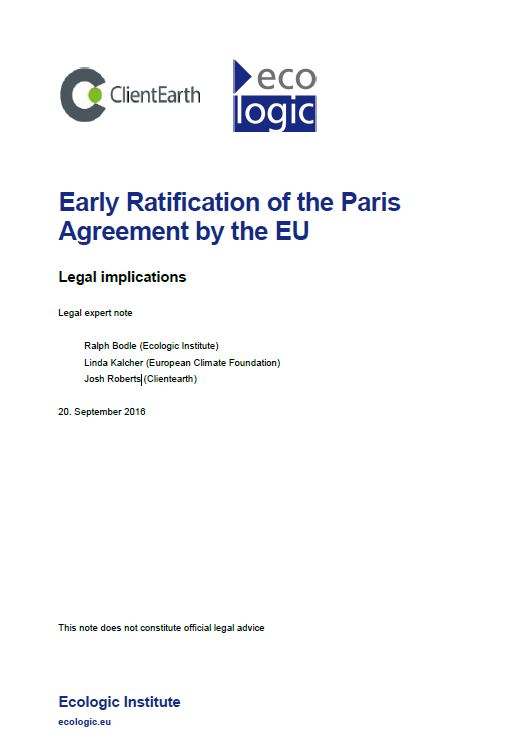Legal Form and Nature of the Paris Outcome
- Publication
- Citation
Oberthür, S., & Bodle, R. (2016). Legal Form and Nature of the Paris Outcome, Climate Law, 6(1-2), 40-57. doi: https://doi.org/10.1163/18786561-00601003
This article analyses the legal form and nature of the Paris Agreement by exploring five core issues: (1) the status of the Paris Agreement as an instrument of international law; (2) the 'housing' of mitigation plans, actions, and targets within or outside the treaty; (3) the prescriptiveness and precision of the wording of specific commitments and provisions; (4) the nature of the commitments, in particular result versus conduct; and (5) the provisions to ensure accountability and promote effective implementation. Dr. Ralph Bodle and Prof. Sebastian Oberthür argue that the Paris Agreement constitutes an international treaty whose prescriptive and precise legal obligations are primarily procedural and focused on 'nationally determined contributions' (on mitigation) and the core transparency framework. Many other less precise and prescriptive obligations and provisions, including a number of rather programmatic statements, are best understood as establishing a political narrative that aims to guide the implementation and future evolution of the Agreement.


